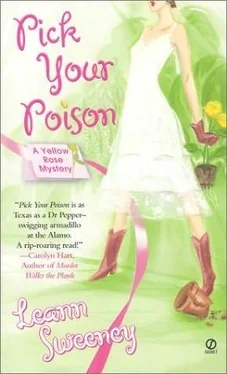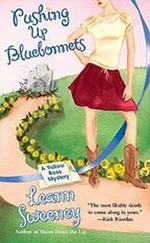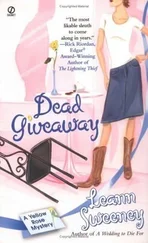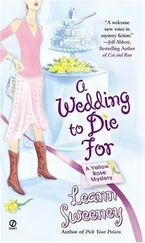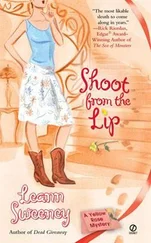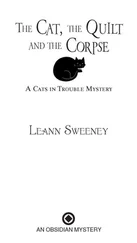Leann Sweeney - Pick Your Poison
Здесь есть возможность читать онлайн «Leann Sweeney - Pick Your Poison» весь текст электронной книги совершенно бесплатно (целиком полную версию без сокращений). В некоторых случаях можно слушать аудио, скачать через торрент в формате fb2 и присутствует краткое содержание. Год выпуска: 2004, ISBN: 2004, Издательство: Signet, Жанр: Триллер, Детектив, на английском языке. Описание произведения, (предисловие) а так же отзывы посетителей доступны на портале библиотеки ЛибКат.
- Название:Pick Your Poison
- Автор:
- Издательство:Signet
- Жанр:
- Год:2004
- ISBN:978-1-101-09890-5
- Рейтинг книги:5 / 5. Голосов: 1
-
Избранное:Добавить в избранное
- Отзывы:
-
Ваша оценка:
- 100
- 1
- 2
- 3
- 4
- 5
Pick Your Poison: краткое содержание, описание и аннотация
Предлагаем к чтению аннотацию, описание, краткое содержание или предисловие (зависит от того, что написал сам автор книги «Pick Your Poison»). Если вы не нашли необходимую информацию о книге — напишите в комментариях, мы постараемся отыскать её.
Pick Your Poison — читать онлайн бесплатно полную книгу (весь текст) целиком
Ниже представлен текст книги, разбитый по страницам. Система сохранения места последней прочитанной страницы, позволяет с удобством читать онлайн бесплатно книгу «Pick Your Poison», без необходимости каждый раз заново искать на чём Вы остановились. Поставьте закладку, и сможете в любой момент перейти на страницу, на которой закончили чтение.
Интервал:
Закладка:
“Sheesh. Just what I want to do. Spend the afternoon with an alligator with chapped lips,” I mumbled, following him.
Once inside, I saw he’d been hard at work. The scent of pine welcomed me when I entered, and the ceiling fan in the parlor was spinning furiously. The wooden shades were all open, revealing gleaming windows.
Steven was in the kitchen watching a few roaches squirm in the throes of chemical death on the tile floor.
“Looks like a different place. I’m impressed,” I said, nodding in appreciation.
My reaction seemed to soften him up a little, because he almost smiled. “I paid the cleaning crew a hundred and the exterminator fifty. My treat. But where in hell have you been?”
“Sorry, but I had a few visitors this morning.”
Steven pointed to a spray bottle on the counter. “While I remember, the bug man left extra juice in case a few critters need an extra push to roach heaven.”
“There’s always some who hang on. Have you eaten yet?” I asked.
“No, and I’m pretty darn hungry. Let’s head for the beach and the shrimp. These chemicals may be odorless, but I don’t like to hang around right after the exterminator has done his business. Stuff is pretty potent.”
“How did you know I was craving seafood?” I said as we walked out through the back door.
Stan’s Shrimp Shack, a tiny restaurant off Seawall Boulevard, had few customers, so we had our choice of tables. We sat in the corner farthest from the bar. Between mouthfuls of crab salad, I filled Steven in on what I had learned about Ben after the funeral yesterday and how I hoped to find answers.
“So you talked the county mountie out of his paperwork, huh?” He peeled a shrimp and dunked it in hot sauce. “I knew you couldn’t keep your pretty nose out of this mystery.”
“Hey, I can do what I want with my pretty nose.”
“And how I love it when you remind me. Let’s talk about the house. That’s what I’m doing in Galveston, right?”
“I know the place is in bad shape,” I said.
We spent the next thirty or forty minutes discussing the needed renovations, and by the time he finished, I wondered if we might be better off tearing the place down and starting over.
Steven, who could still read my mind as well as ever, said, “And don’t even think about razing the Victorian. I contacted the city, and the house is more than a hundred years old. You don’t tear down hundred-year-old houses in Galveston without dealing with reams of paperwork and getting multiple stamps of approval.”
“Okay. But this sounds like a huge undertaking. Can you handle this project alone?” I asked.
“No way. But I will get the house in good enough shape to last through hurricane season. Fix the roof, replace windows, that kind of stuff. Meanwhile, I’ve arranged to have a more experienced renovator come by and take a look.”
I nodded. “You’ve impressed me twice in one day, Steven. Sounds like I hired the right man. But we haven’t discussed your fee.”
He stiffened. “I don’t want your money. I got enough when we divorced.”
“That’s not what you told the judge.”
“Hey, I was knee-walking, spit-slinging drunk the day we finalized. You can’t hold me to anything I said back then.”
“Okay. Maybe that’s so. But I’m still paying you for your work. I want this to be a professional relationship.”
“You don’t want to owe me? Is that it?” He sat back, arms folded across his chest.
How did he always manage to turn things around? I took a deep breath. “If you want, I’ll have Willis work with you about payment. That way you and I can stay clear of touchy issues like money.”
He said nothing for several seconds; then his face relaxed in a smile. “Good idea.”
I smiled back, relieved. If Steven stayed sober and if we both controlled our tempers, this renovation might actually be fun.
We went back to the Victorian after lunch, and he showed me where we needed the most urgent repairs, pointed out the phone he’d had installed, and then went upstairs to work on a leaky toilet. Meanwhile, I returned to the vandalized room. Maybe I could find bank records that would lead me to the mysterious safe-deposit box. But after an hour of searching, I settled for the next-best option—canceled checks. Since Daddy must have paid for the box’s rental somehow, and since he used checks for everything, maybe I could find the name of the bank that way.
I was placing rubber-banded stacks of paper in a box when Steven appeared in the door, wrench in hand. “I need a few plumbing supplies. Can I get you anything while I’m out? A Coke or something?”
“No, I’m on my way home. You can carry this box to my car, though.”
He set down his wrench, came over, and picked up the box. “What’s in here? Bricks?”
“Three decades of canceled checks.” I explained about the safe-deposit box and my plan to find out where the box was hiding.
“Good thing Charlie saved everything,” Steven said snidely, heading for the stairs. “He’s providing for your entertainment even after he’s gone.”
I chose not to answer back, but all the way home I kept wondering why Steven had to ruin what had almost been a pleasant afternoon.
When I arrived back in Houston, Kate had left a note saying she was at Terry’s place. Time for a chore I had been putting off. I told Ruth I would gather whatever belongings Ben had left in the garage apartment once the police removed the crime scene tape, which they had done while I was at the funeral. I went outside, found a cardboard box in the garage, then climbed the stairs.
The air-conditioning had been turned down to sixty degrees, probably by the cops, and they left the ceiling fan running, too. Goose bumps rose on my bare arms, and I immediately reset the thermostat.
The apartment we furnished consisted of only two rooms—a living area with a small kitchenette, and a bedroom. The chenille couch cushions lay on the floor, and the cabinets below the sink and microwave stood ajar. I found a crocheted afghan by the recliner that I didn’t recognize and folded the blanket into the box. After a brief search of the room, which yielded only a coffee mug and several Handyman magazines, I went to the bedroom.
I stopped after stepping inside, a lump in my throat. A quilt similar to those Ruth had shown me up at her place, ones she made by hand, had been pulled off the bed, and a worn Bible rested on the end table. Pillowcases and sheets had been tossed in the corner, and the mattress was off center on the box springs. Every dresser drawer stood open, their contents removed. Ben’s meager wardrobe—work clothes, Levi’s, cotton shirts, and underwear—lay in a crumpled pile in the closet. All the pockets in his trousers were turned out.
I sat on the floor and packed up his clothes, feeling sad and also a little angry at how the police had discarded his belongings. I then folded the quilt and remade the bed before turning to the Bible. For some reason, I didn’t want to even touch the book. Bibles seemed such private things.
Feeling like I was somehow betraying Ben, I opened to the first page. What I saw made me blink hard and swallow that tennis ball in my throat. The inscription read, To Ben from Connie. All my love. July 24, 1971.
Connie? Not his beloved Cloris? Was this the Connie mentioned in the newspaper article? The one who had disappeared? Seemed a logical conclusion. So what happened to Connie? And why would an article about her be packed away with Cloris’s belongings?
I quickly boxed up Ben’s things and hurried back to the house, anxious to research the newspaper article. I took the clipping into Daddy’s study and booted up the computer. The byline in the Marysville Sentinel clipping belonged to a Larry Kryshevski. The small newspaper did have a web site, but the archives went back only a year. I called the phone number provided on the site, but the young woman who answered had never heard of the author. Heck, the article was probably written before she was born.
Читать дальшеИнтервал:
Закладка:
Похожие книги на «Pick Your Poison»
Представляем Вашему вниманию похожие книги на «Pick Your Poison» списком для выбора. Мы отобрали схожую по названию и смыслу литературу в надежде предоставить читателям больше вариантов отыскать новые, интересные, ещё непрочитанные произведения.
Обсуждение, отзывы о книге «Pick Your Poison» и просто собственные мнения читателей. Оставьте ваши комментарии, напишите, что Вы думаете о произведении, его смысле или главных героях. Укажите что конкретно понравилось, а что нет, и почему Вы так считаете.
